Christmas Greetings from PHECC

The staff at PHECC wish all our registrants, stakeholders and members of the public a very Happy Christmas and a peaceful and prosperous New Year.
We offer our sincere thanks for your support and goodwill throughout the year and we are looking forward to continuing our involvement in the provision of quality pre-hospital emergency care during 2017.
Office Holiday Schedule
Open: Monday 19th December – Friday 23rd December
Closed: Monday 26th December – Monday 2nd January
The office will re-open at 9am on Tuesday 3rd January 2017
|
Minister announces new membership of PHECC Council
The Minister for Health and Children has appointed the membership of the Pre-Hospital Emergency Care Council. The composition of the Council is laid down in the legislation (PHECC Establishment Order). The membership reflects the EMS profession, service providers, training institutions, trade unions and the public. In addition, there are also representatives from the nursing and medical professions along with individuals who have a special interest or expertise in pre-hospital emergency care.
Full story
|
Am I authorised to LEGALLY administer medications?
As a registered healthcare practitioner you need legal authority to administer medications. No matter what your practice setting is, you, as a practitioner, are responsible for ensuring that your own practice is legal. The first question you should ask is “Is the service provider recognised by Council for approval to implement PHECC CPGs”. If the answer is NO then you may not administer medications using PHECC Clinical Practice Guidelines (CPGs) for authorisation.
Full story
|
Protocol 37-The Emergency Inter-Hospital Transfer Policy
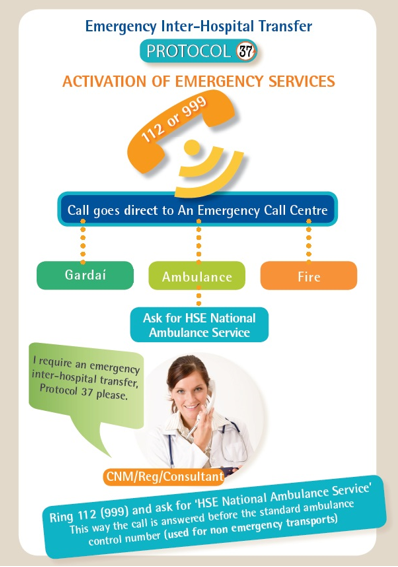 Protocol 37 has been developed for emergency inter-hospital transfers for patients who require a clinically time critical intervention which is not available within their current facility. Protocol 37 is the latest protocol to be added to the priority dispatch suite used by the National Emergency Operations Centre/HSE National Ambulance Service. Protocol 37 has been developed for emergency inter-hospital transfers for patients who require a clinically time critical intervention which is not available within their current facility. Protocol 37 is the latest protocol to be added to the priority dispatch suite used by the National Emergency Operations Centre/HSE National Ambulance Service.
Full story
|
Examination numbers on the rise
The examinations team were very busy conducting exams this year. 2016 saw an increase in both EMT and paramedic candidates taking PHECC exams, with almost 700 candidates to date in 2016 as opposed to less than 500 for 2015.
Full story
|
PHECC Practitioner Re-Registration Survey
Last July over 46% of our registrants completed a survey of our online re-registration process. This was the first time a study of this type was undertaken. One of the main objectives of the survey was to ascertain registrant satisfaction with the process, in order to identify where change or further development may be required. Overall, 92% of respondents indicated satisfaction with the re-registration process. We received valuable feedback on how the process could be improved and the specific areas where individuals had difficulties. We have now reviewed and analysed the survey data and are implementing a number of initiatives to improve the re-registration process.
Full story
|
PHECC’s Quality Review Framework
PHECC Quality Review Framework (QRF), implemented in 2015, serves as the quality assurance model and process for ensuring that recognised institutions (RIs) who develop and deliver courses, on behalf of PHECC, maintain high standards of service. The QRF provides a range of Quality Standards (QS) for RIs and a process for monitoring achievements against these standards.

Full story
|
What’s happening with the transition of OFA/HSA to FAR/PHECC project?
The transition from Occupational First Aid (OFA) to First Aid Response (FAR) as the national standard for first aid in the workplace is a focal point of conversation within the first aid and health and safety circles within the past few months.
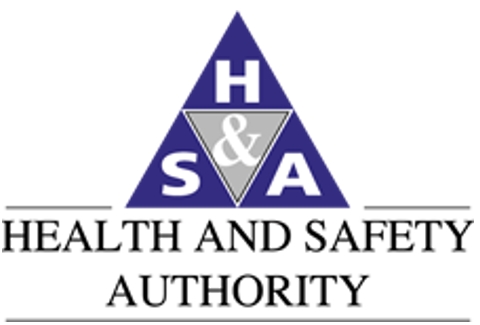 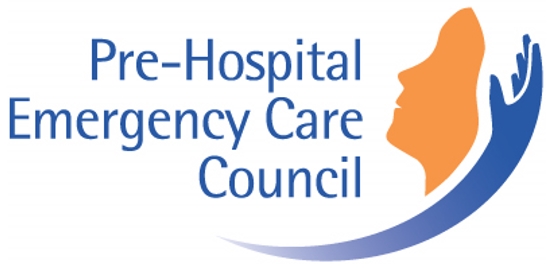
Full story
|
CISM eLearning module for Stress Awareness Training
The Critical Incident Stress Management (CISM) stress awareness training module was originally developed by PHECC in partnership with the National Ambulance Service (NAS). It is available to:
-
PHECC registered practitioners at all levels
-
NAS personnel who are not registered practitioners, and
-
Community responders who are members of programmes linked to NAS.
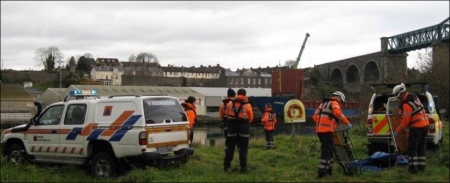
Full story
|
PHECC’s submission to the Oireachtas Committee on the Future of Healthcare
Earlier this year we prepared a submission to the Oireachtas Committee on the Future of Healthcare, focusing on the area of pre-hospital care. Here are some of PHECC’s recommendation to the Oireachtas Committee.
Full story
|
First EMT CPC Portfolios reviewed by Assessor Panel
 The EMT CPC process has reached the end of the beginning following the completion of the first round of practitioners’ portfolio assessments. Omar Fitzell (EMT CPC Coordinator) and his team of fellow EMT CPC Assessors reviewed over 90 portfolios last month and an evaluation report is being drafted for consideration by the new PHECC Council. The EMT CPC process has reached the end of the beginning following the completion of the first round of practitioners’ portfolio assessments. Omar Fitzell (EMT CPC Coordinator) and his team of fellow EMT CPC Assessors reviewed over 90 portfolios last month and an evaluation report is being drafted for consideration by the new PHECC Council.
Full story
|
Right patient, to the right care, in the right condition, in the right time
The National Transport Medicine Programme (NTMP) is one of the clinical programmes and was established in 2012.
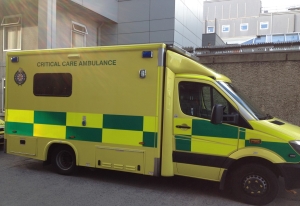
Full story
|
eACR/PCR Stakeholder Engagement
 The eACR stakeholder group, which includes Civil Defence, Irish Red Cross, Order of Malta and St John Ambulance met again in September for a status update. All user organisations were represented by their eACR leads and each presented on their data collection pilot experiences, followed by round the table discussion. The eACR stakeholder group, which includes Civil Defence, Irish Red Cross, Order of Malta and St John Ambulance met again in September for a status update. All user organisations were represented by their eACR leads and each presented on their data collection pilot experiences, followed by round the table discussion.
Full story
|
Restart a Heart Day
When a person’s heart stops beating, rapid intervention is required. Many of the vital skills needed to save a life in such a circumstance can be initiated by members of the public. This group of “cardiac arrest” victims currently have a low survival rate in Ireland. One of the reasons for this is a lack of public awareness on how to help these people. Giving adequate chest compressions, accessing a defibrillator and calling the emergency services quickly gives these patients the best chance of survival.
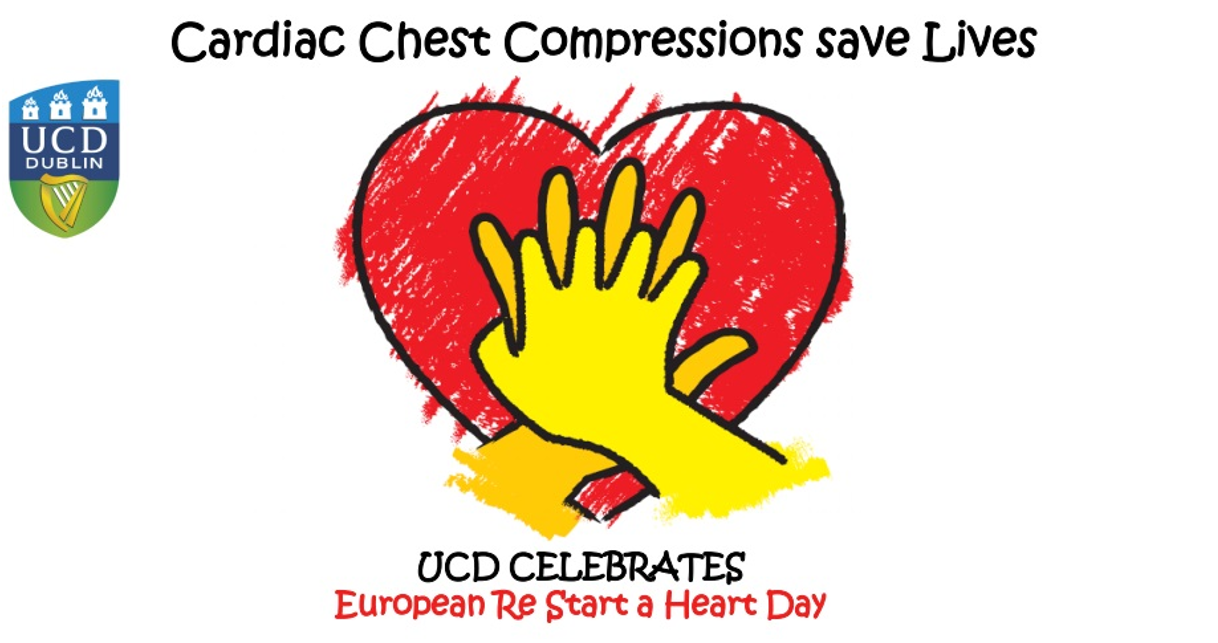
Full story
|